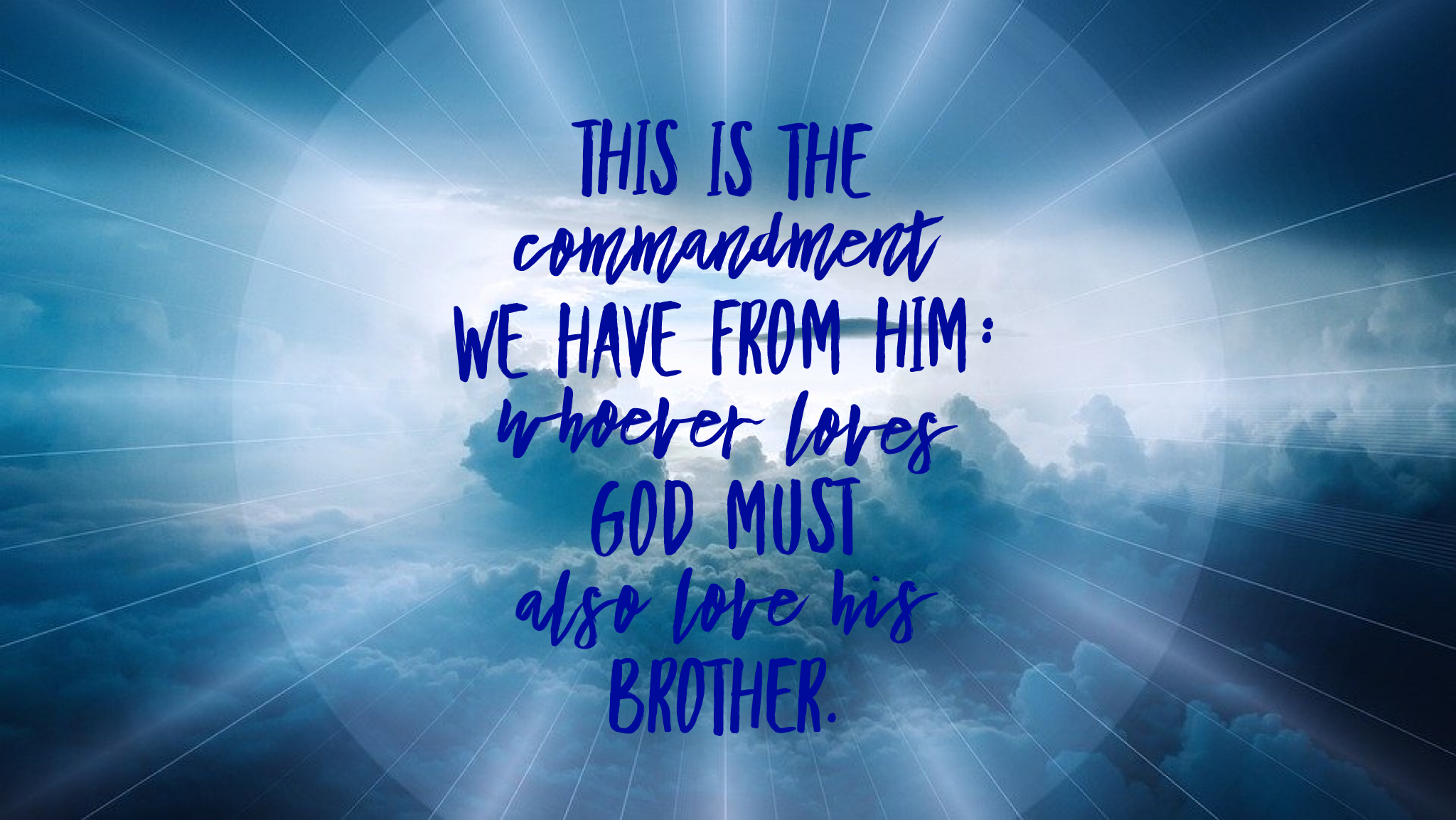Today’s Scriptures continue to reveal Christ manifested in the flesh, and the way his manifestation looks today is like love. We have the great joy of continuing our reading from the first letter of John today, and, as I mentioned on Tuesday, John is always about love. Today John gives us a discerning test, so that we can see if a person is of God. The test is whether that person loves his or her brothers and sisters. Because one cannot claim to love God who is so very much beyond us, if we cannot love the brother or sister who is right in front of us.
That can prove to be a very daunting test to be sure. Because I don’t think I’m too far out on a limb to say we’re not very often irritated by the God who is beyond us, but are often irritated by the brother or sister who is always right there in our face! Still, the commandment is clear: “Whoever loves God must also love his brother.”
Jesus Christ is the personification of God’s love for us. God came to be among us not in some kind of ethereal nature, but with a human face and a human heart, and a love that overcomes all the flaws of our flesh. It is that love that sets us free. In Jesus, all the prophecies of deliverance are fulfilled: “The Spirit of the Lord is upon me,” Jesus says, “because he has anointed me to bring glad tidings to the poor. He has sent me to proclaim liberty to captives and recovery of sight to the blind, to let the oppressed go free, and to proclaim a year acceptable to the Lord.”
And if our own love for our brothers and sisters can transcend our petty day-to-day irritations, or even our deep-seated hurts and resentments, than maybe we can set people free, and even set ourselves free, and make Jesus incarnate in the world yet again.
